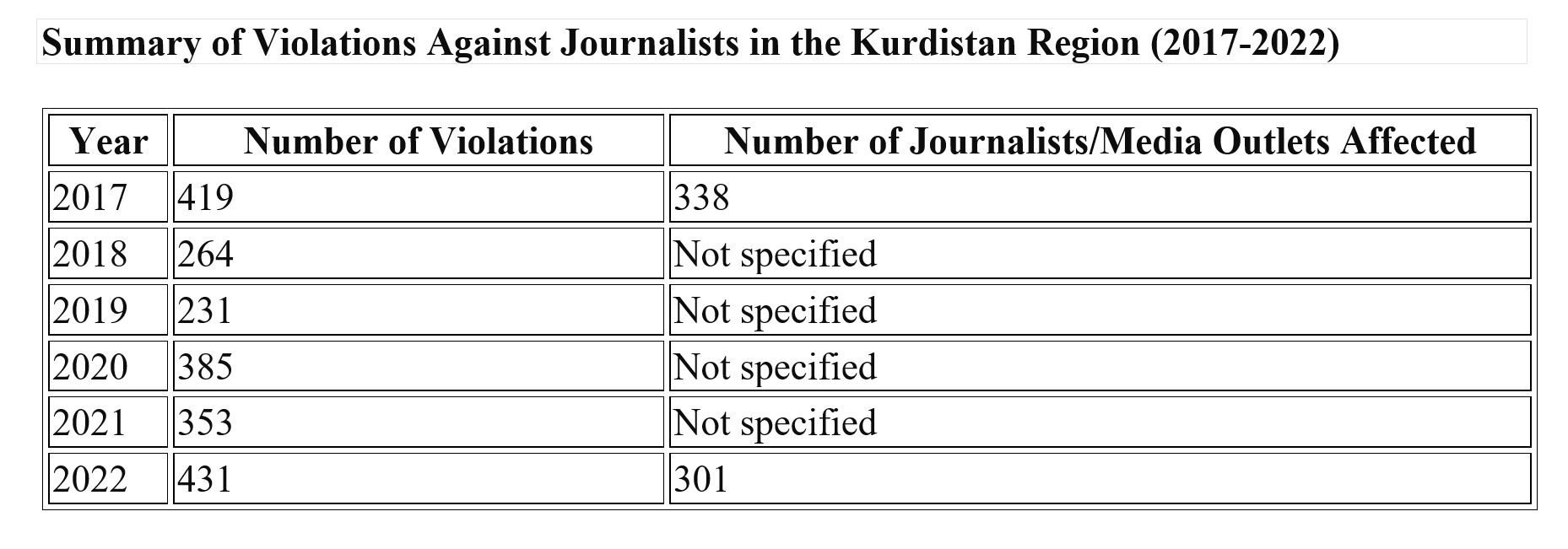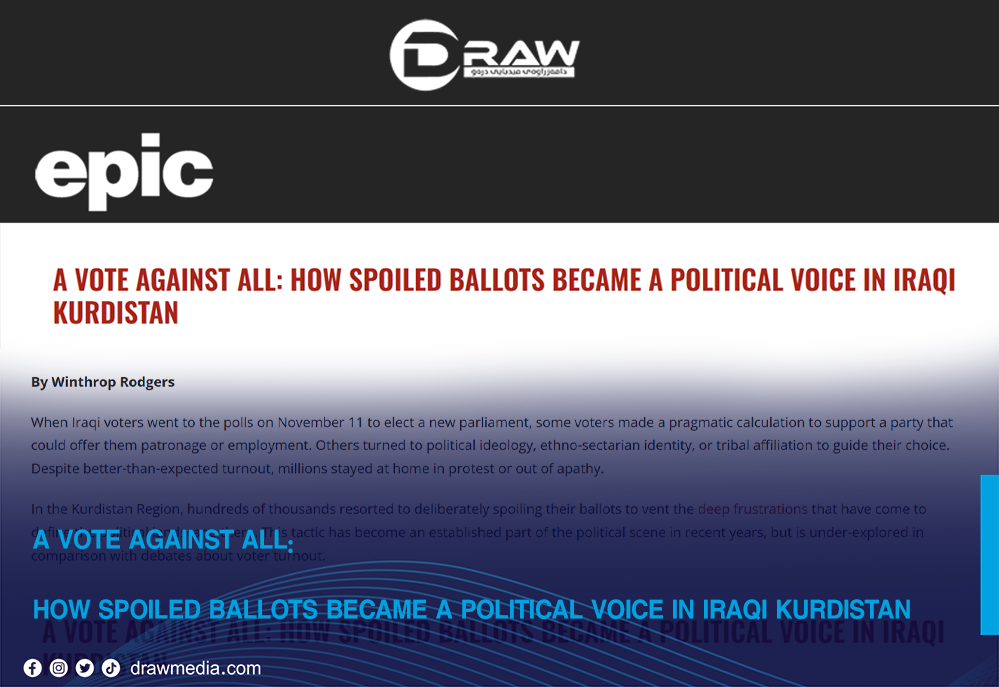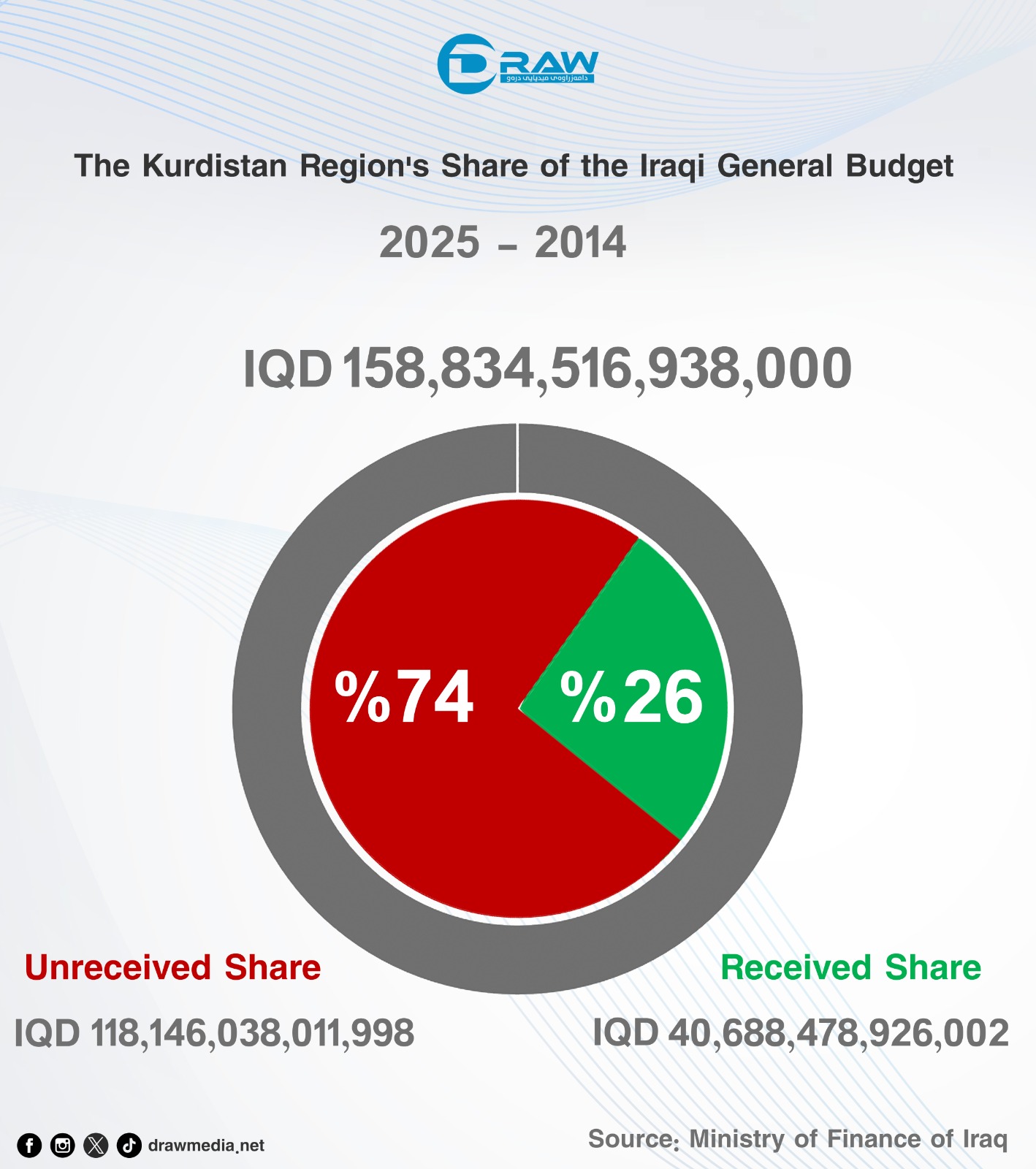KDP and PUK's Silent Killing in Iraqi Kurdistan
.jpg)
2024-07-08 13:01:04
Draw Media
Dr. Hawre Hasan Hama, lecturer at the University of Sulaimani, PhD in Peace Studies
The Kurdistan Democratic Party (KDP) and the Patriotic Union of Kurdistan (PUK) kill us either quickly and suddenly or slowly and insidiously.
For years, the Kurdistan Region’s ruling parties killed people directly and openly. The armed conflict between the KDP and the PUK in the mountains during their armed struggle against the former Ba’ath regime and later during the civil war in the 1990s were examples of deliberate and direct killings. Even today, the rivals are ready to kill anyone openly and directly who they feel poses a threat to their survival. Their efforts to keep the armed forces under their control and to militarize Kurdish society are clear. The killing of demonstrators and journalists and the attacks on opposition headquarters are clear examples of deliberate and open killings.
Over the past twenty years, the KDP and the PUK have reached a general reconciliation, agreeing not to fight each other anymore and not to kill people's sons. Instead, they created a political system of governance that does the killing for them. The two-party rule produces indirect violence against the Kurdish people in an organized and legal manner. While direct violence is rarer these days, indirect violence that slowly kills civilians is everywhere.
The KDP-PUK governance style is characterized by social injustice, weak rule of law, the militarization of civil society, corruption, waste of public resources, and the politicization of all sectors. In other words, this type of governance is the root cause of the deaths of citizens. The KDP and the PUK are primarily responsible for the poor quality of health care, welfare, social services, the courts, electricity, water, roads, and the environment.
The most common forms of indirect violence in the Kurdistan Region are the poor quality of infrastructure and services, a rigged economic system, human rights violations, and the weak rule of law.
First, the poor quality of infrastructure and services is responsible for numerous preventable deaths. Take the Kurdistan Region’s poor roads and traffic systems. Hundreds of people are killed each year in traffic crashes and thousands are injured. This is a solvable problem that is not being adequately addressed by the political authorities. If traffic and road systems are more orderly, many deaths can be prevented. Or, take the underdevelopment of the health care system. The lack of basic medical supplies, equipment, and pharmaceuticals ensure that patients do not get the quality of care that they deserve and need. Again, it is the Kurdistan Region’s leadership that bears responsibility.
Second, the economic system is rigged in favor of those with close connections to the political parties. They control the market, businesses, the private sector, and job opportunities. They dole them out based on partisan interest. In the KDP’s zone, contracts and jobs go to KDP-connected businesses; the same is true for the PUK in its zone of control. This creates systemic economic inequality where the rich profit at the expense of the poor. In the developed world, poverty is considered to be a kind of violence. To participate in impoverishing someone is to commit violence against that person. Because of their status, the poor cannot access healthy food, afford medical care, struggle with unemployment, and live without basic services and in areas where there are high levels of pollution. Poverty in the Kurdistan Region is the result of this rigged economic system, which has created widespread unemployment.
All the consequences of unemployment and economic inequality are indirect forms of violence. Thousands of young people are unemployed in the Kurdistan Region. The governance in the Region fails to provide equal job opportunities. The consequences range from migration to Europe, mental and psychological problems, inability to provide basic necessities of life, and (in some cases) suicide.
Third, the KDP and the PUK are guilty of numerous human rights violations. Examples of these violations include, aggressive surveillance of the population, attacking critics, and arresting journalists. The statistics from the Metro Center, an independent non-governmental organization for Journalist Rights and Advocacy, reveal a concerning pattern of violations against journalists and media outlets in the Kurdistan Region. Despite some years of reduced incidents, the overall trend remains alarming, highlighting the ongoing challenges faced by the press in this region. This situation calls for sustained efforts to safeguard journalistic freedoms and ensure a safer environment for media practitioners. Again, the issues are systemic. Even when the government fails to pay salaries, public servants are unable to complain publicly about their problems.
Finally, the parties have conspired to weaken the rule of law. The lack of a proper police force and impartial courts means that citizens are daily denied justice when their rights are violated. Without the ability to seek justice through legal means, they resort to revenge and violence or extra-judicial tribal arbitration.
Therefore, the rule of the PUK and KDP is the biggest threat to human security in the Kurdistan Region. Yet, the reason why we do not consider their rule as a threat is that the KDP and the PUK are killing us indirectly and slowly, not openly and directly. Through their media, the parties present themselves as lawyers, not killers, and some of us believe them.
To live a long and healthy life, we must reject the rule of the KDP and the PUK. The next elections will allow us to have good governance. We must take this opportunity to protect our lives. On the contrary, voting for the ruling parties is like supporting a terrible killer. Let us not support people who are our killers. The people of Kurdistan should vote for the opposition parties. The International community must support a free and fair election in Iraqi Kurdistan.



.jpg)

.png)


.jpg)

.jpg)
